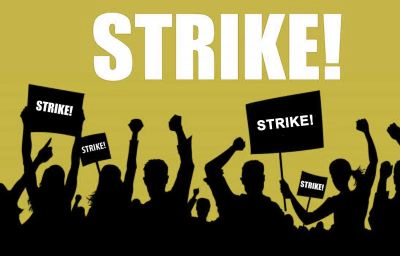Signification du mot strike en français
Que signifie strike en anglais ? Découvrez la signification, la prononciation et l'utilisation spécifique de ce mot avec Lingoland
strike
US /straɪk/
UK /straɪk/

Verbe
1.
2.
faire grève
refuse to work as a form of organized protest, typically in an attempt to obtain concessions from their employer
Exemple:
•
The workers decided to strike for higher wages.
Les travailleurs ont décidé de faire grève pour des salaires plus élevés.
•
The union threatened to strike if their demands were not met.
Le syndicat a menacé de faire grève si leurs revendications n'étaient pas satisfaites.
Synonyme:
3.
frappe, attaque
a sudden, dramatic, and successful military attack
Exemple:
•
The air force launched a precision strike against the enemy.
L'armée de l'air a lancé une frappe de précision contre l'ennemi.
•
The government authorized a retaliatory strike.
Le gouvernement a autorisé une frappe de représailles.
Nom
1.
grève
a refusal to work organized by a body of employees as a form of protest, typically in an attempt to gain concessions from their employer
Exemple:
•
The union called for a general strike.
Le syndicat a appelé à une grève générale.
•
The transport workers are planning a 24-hour strike.
Les travailleurs des transports prévoient une grève de 24 heures.
Synonyme:
Mot Associé: